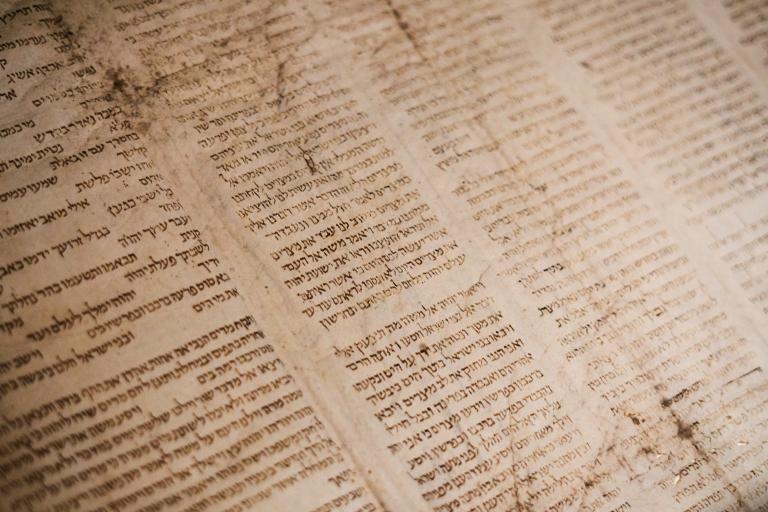
If one of the creation stories of the Israelites could end up being rejected and replaced, why couldn’t the others? If most of Israel came to think of one of their Creation Stories as a myth, what stops that from ever happening again to a different Creation Story? If it could happen to Yahweh’s battle with Leviathan, why not the stories in Genesis?
THE FIGHT OVER EVOLUTION
No debate has more divided, antagonized and divided Christians than the issue of creation and biblical literalism. The damage this debate has caused both individuals and communities is immeasurable. Not only has it disenfranchised millions from reading the Bible (in no small part due to the attitudes of those arguing from it) but it has also caused deep divisions between Christians who are told that if they don’t accept the story in Genesis 1 literally, then they are not even Christians.
While this issue has affected innumerable Christians the world over, I can personally relate to the issue from the standpoint as a member of the Seventh-day Adventist church. In recent memory, the issue of how to read the Creation Story in Genesis (literally or poetically) has caused many deep rifts in the church and even led to witch hunts that resulted in the firing of professors from esteemed universities. The controversy eventually led to the church recently emphasizing officially that to be an Adventist was to only take Genesis 1 literally.
So it might come as a surprise to discover that according to a recent Pew Study in February of 2016, 33% of North American Adventists actually believe in or are open to the theory of Evolution.[1] Similar, if not larger statistics can be observed with Evangelicals in general who are also facing deep questions about the reliability of Genesis 1 in comparison to modern scientific findings about the creation of the world.
That statistic is shocking given the recent events on this issue in the church and reveals that there are a large number of Adventists who can no longer believe the same way as they were raised.
I believe that a forgotten story in the Bible, describing the sea-dragon Leviathan, holds promise for us in reviewing this issue and deciding whether or not this fork in the path is truly as black and white as we have been routinely lead to believe.
THE FORGOTTEN BIBLICAL DRAGON
Scattered throughout the Bible (Ps. 74:12-17; 89:9-10; Job 26:12-13; Is. 51:9) are repeated references to one of Ancient Israel’s oldest stories of creation, a tale that narrated how Israel’s God, Yahweh, was forced to battle and kill a host of sea dragons (including their leader, a seven headed dragon variously named Leviathan/Rahab) prior to establishing creation.
In Psalm 74, the story is referenced with regard to creation.
Yet God my King is from of old, working salvation in the earth. You divided the sea by your might; you broke the heads of the dragons in the waters. You crushed the heads of Leviathan; you gave him as food for the creatures of the wilderness. You cut openings for springs and torrents; you dried up ever-flowing streams. Yours is the day, yours also the night; you established the luminaries and the sun. You have fixed all the bounds of the earth; you made summer and winter. (Psalm 74:12-17)
In the book of Job, the story gets a brief reference.
By his power he stilled the Sea; by his understanding he struck down Rahab. By his wind the heavens were made fair; his hand pierced the fleeing serpent. (Job 26:12-13)
Again, the story is referenced in passing in another psalm.
You rule the raging of the sea; when its waves rise, you still them. You crushed Rahab like a carcass; you scattered your enemies with your mighty arm. (Psalm 89:9-10)
And even the Bible’s famous prophets reference the story in their appeals to God:
Awake, awake, put on strength, O arm of the Lord! Awake, as in days of old, the generations of long ago! Was it not you who cut Rahab in pieces, who pierced the dragon? (Isaiah 51:9)
THE DEATH OF A STORY
The real issue at the core of the ancient myth of the sea dragon is the issue of creation. Leviathan’s story was at one point, like Genesis 1, a creation story. Yet, this was a creation story that Genesis 1, when it was written much later, explicitly rejects in vss. 20-21 (by stating that the dragons were created after the events of creation had already begun).
And God said, “Let the waters bring forth swarms of living creatures, and let birds fly above the earth across the dome of the sky.” So God created the great sea monsters and every living creature that moves, of every kind, with which the waters swarm, and every winged bird of every kind. And God saw that it was good. (Genesis 1:20–21)
Imagine this fascinating scenario: many Israelites would have been raised with the story of Leviathan/Rahab for generations after generations, only to suddenly be told by the Priestly writer of Genesis that the story was theologically wrong and needed to be replaced.
In short: the very reason we don’t have a full length narration in Scripture of the battle of the sea-dragons is because later Israel/Judah came to reject the story.
The result? When John of Patmos, in the New Testament, describes Leviathan, the dragon has become a mythical metaphor/symbol for evil, rather than a historical reality (Rev. 12:3-4).
WHAT DOES THAT MEAN FOR US?
This forces us to grapple with an honest question:
If one of the creation stories of the Israelites could end up being rejected and replaced, why couldn’t the other(s)?[2]
If most of Israel came to think of that Creation Story as a myth, what stops that from ever happening again to a different Creation Story? If John in Revelation could come to understand Leviathan poetically or as only metaphorically true, why is that not possible and equally valid for us to do with a text such as Genesis 1 which has clear signs, as all Biblical Scholars agree, of actually being an example of ancient Israelite poetry?
Even if we aren’t talking about the death of a story, a review of Jewish literature written shortly before Jesus (during the Second Temple period) reveals that the story itself of Leviathan and even Leviathan himself as a character evolved, morphed and changed in radical ways due to changing theological positions and new ideological worldviews.
His story of creation did not remain untouched by culture or by new theological innovations, rather it was swallowed up by them, reinterpreted by them and eventually spit out by them. If it could happen to Yahweh’s battle with Leviathan, why not other aspects of Genesis?
Mind you, I’m not saying that the answer or replacement would be Evolution (that scientific story of creation comes with its own batch of theological problems), but I am suggesting that the argument that says that there’s only two choices, God’s word or Man’s, is flawed and ignores the history of interpretation which the Biblical writers show us.
We can see that the voices today arguing over a specific creation story are merely echoing past voices who once argued over a different story. That similarity and realization must either be ignored or it must break the deadlock, allowing us to enter a new and different kind of conversation, one that recognizes that the truth is deeper and more mysterious than the literal words that describe it.
[1] Jared Wright, “Super Tuesday Notes: More Adventists are Democrats than Republicans,” Spectrum Magazine (March, 1 2016). http://spectrummagazine.org/article/2016/03/01/super-tuesday-notes-more-adventists-are-democrats-republicans
[2] Although unknown to many, there are actually three other creation stories aside from the one regarding Yahweh’s fight with the Sea Dragons. Genesis 1 and 2-3 are two of them, with a lengthy allusion to the third being found in Ezekiel 28.
 Matthew J. Korpman is a minister-in-training and published researcher in Biblical Studies and Church History. Pursuing his Masters at Yale Divinity School, he did his undergraduate work at the H.M.S. Richards Divinity School, where he completed four degrees in fields such as Religious Studies, Philosophy and Archaeology. He is an active member of the Seventh-day Adventist church whose research interests include everything from the Apocrypha to the Apocalypse.
Matthew J. Korpman is a minister-in-training and published researcher in Biblical Studies and Church History. Pursuing his Masters at Yale Divinity School, he did his undergraduate work at the H.M.S. Richards Divinity School, where he completed four degrees in fields such as Religious Studies, Philosophy and Archaeology. He is an active member of the Seventh-day Adventist church whose research interests include everything from the Apocrypha to the Apocalypse.












